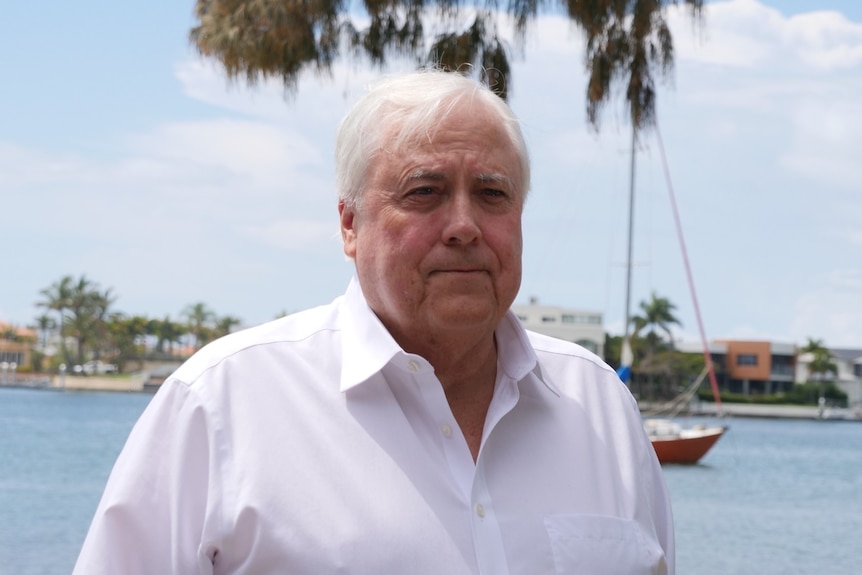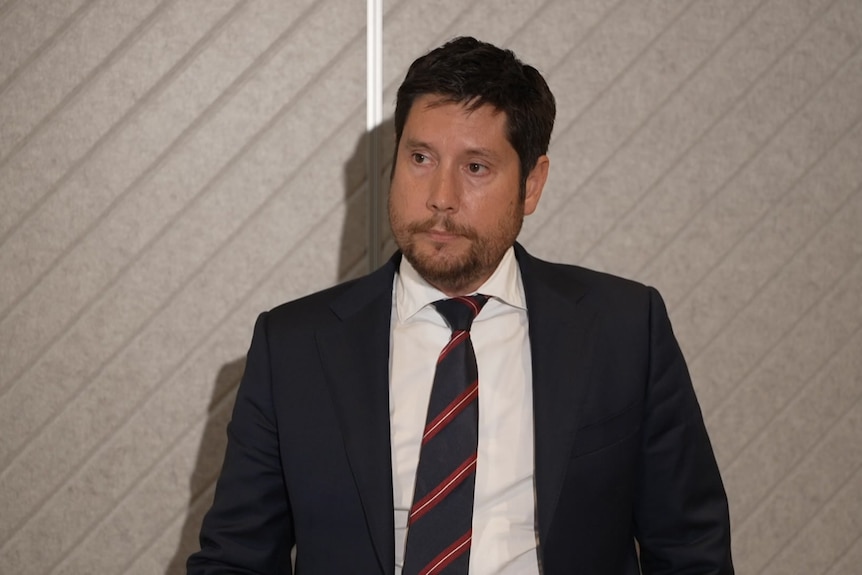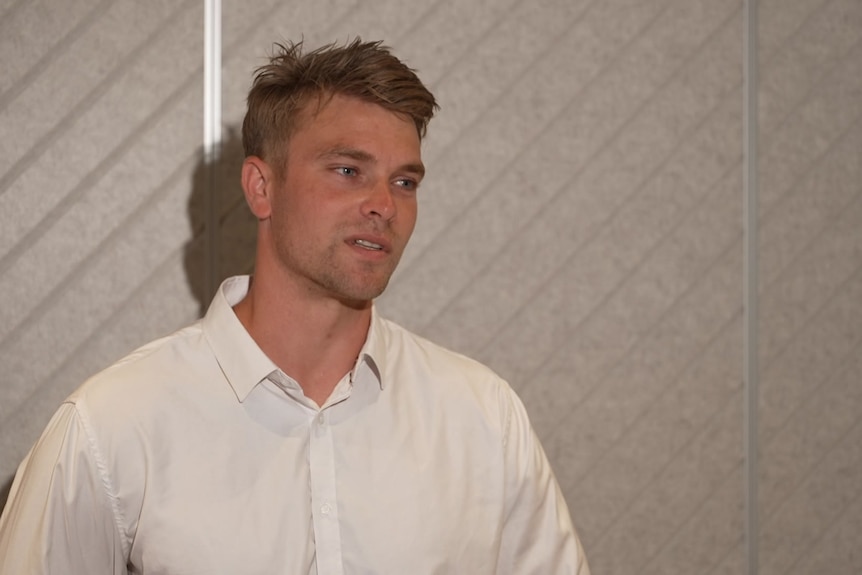https://www.abc.net.au/news/2024-10...utm_campaign=abc_news_app&utm_content=twitter
Hundreds of former and current police officers and staff members have launched a class action lawsuit against the state government and the Queensland Police Service, over its COVID-19 vaccine mandates.
The lawsuit, filed in the Supreme Court in Brisbane on Friday, is being funded by billionaire Clive Palmer.
It comes after the Queensland Supreme Court ruled that COVID-19 mandates breached the human rights laws of some frontline workers.
In his written decision in February, Justice Glenn Martin ruled the directives breached section 58 of the Human Rights Act, which stated that all public service employees must give proper consideration to human rights before making a decision, and that they must act and make decisions that are compatible with human rights.
However, Justice Martin did not find mandatory COVID-19 vaccinations were contrary to the HRA, but that the directions were issued unlawfully.

The lawsuit is being funded by billionaire Clive Palmer. (ABC News: Kimberley Bernard)
Mr Palmer had also confirmed he funded that legal action at the time, which he said cost between $2-3 million.
It's not known how much supporting this lawsuit has cost the mining magnate.
Solicitor, Justin Sibley, who is leading the class action, said the COVID vaccine mandates were "coercive," and limited officers' human rights.
"What we're saying is that the coercive mandates were put in by the commissioner of police," Mr Sibley said.
"Which created terrible duress and influence on the police officers and staff members, to try and coerce them into being vaccinated, and has caused damage to them as a result."
He said there were three groups within the class action, spearheaded by three plaintiffs.

Lawyer Justin Sibley says there's three groups within the class action. (ABC News)
One group complied with vaccine mandates, the second sought medical exemptions but were denied and were then vaccinated, and the third group did not get vaccinated and were suspended or terminated.
Mr Sibley said some of those who did not get vaccinated went without pay for more than two years, and have suffered as a result.
Photo shows A health worker wears blue latex gloves and draws some coronavirus vaccine from a vial with a syringe.

Law experts say the Queensland Supreme Court's ruling that COVID-19 mandates breached the human rights laws of some frontline workers is predicted to be "the first of a wave of claims".
"What will be alleged in the class action is that Katarina Carroll not only failed to properly consider human rights, but she also unreasonably limited those humans rights," Mr Sibley said.
Former specialist police officer and senior constable Luke Jones, 30, said he was suspended without pay from his job in Cairns in 2021, and was sacked earlier this year for refusing to be vaccinated.
Mr Jones said he had lost more than $400,000 in wages and super, but the emotional toll had been the hardest.
"The job role that I was in, it was going after some of the most notorious, dangerous people on the street and that's where I felt I could make the biggest impact," he said.
"It was my dream job. I worked very hard for that and to have that stripped away from me, so suddenly out of nowhere, I struggled with identity after that for a long time, because I didn't know who I was or what I wanted to do."

Former specialist police officer and senior constable, Luke Jones says he was suspended then later sacked for refusing to get the vaccine. (ABC News)
Responding to the news that the class action had been filed, Premier Steven Miles said the vaccine mandate was "incredibly important at the time."
"It's what allowed us to reach the point where we could stop doing the lockdowns, when we could get the borders open," he said.
"Obviously, those individuals have their own legal rights, and they're welcome to pursue them."
In a statement the Queensland Police Service said it couldn't comment on current legal proceedings but said it recognised members who complied with the former commissioner's directions to "support the safety of the Queensland community".
"The court was very clear that this finding did not mean the directions were invalid," the spokesperson said.
"The court also found that, on a proper consideration of human rights, the requirement to be vaccinated was reasonable in the context of a global pandemic.
"As such, the QPS maintains it was appropriate for those members of the service to be vaccinated.
"Some employees who were suspended for non-compliance with the directions have returned to work following the revocation of their suspensions."
Hundreds of former and current police officers and staff members have launched a class action lawsuit against the state government and the Queensland Police Service, over its COVID-19 vaccine mandates.
The lawsuit, filed in the Supreme Court in Brisbane on Friday, is being funded by billionaire Clive Palmer.
It comes after the Queensland Supreme Court ruled that COVID-19 mandates breached the human rights laws of some frontline workers.
In his written decision in February, Justice Glenn Martin ruled the directives breached section 58 of the Human Rights Act, which stated that all public service employees must give proper consideration to human rights before making a decision, and that they must act and make decisions that are compatible with human rights.
However, Justice Martin did not find mandatory COVID-19 vaccinations were contrary to the HRA, but that the directions were issued unlawfully.
The lawsuit is being funded by billionaire Clive Palmer. (ABC News: Kimberley Bernard)
Mr Palmer had also confirmed he funded that legal action at the time, which he said cost between $2-3 million.
It's not known how much supporting this lawsuit has cost the mining magnate.
Solicitor, Justin Sibley, who is leading the class action, said the COVID vaccine mandates were "coercive," and limited officers' human rights.
"What we're saying is that the coercive mandates were put in by the commissioner of police," Mr Sibley said.
"Which created terrible duress and influence on the police officers and staff members, to try and coerce them into being vaccinated, and has caused damage to them as a result."
He said there were three groups within the class action, spearheaded by three plaintiffs.
Lawyer Justin Sibley says there's three groups within the class action. (ABC News)
One group complied with vaccine mandates, the second sought medical exemptions but were denied and were then vaccinated, and the third group did not get vaccinated and were suspended or terminated.
Mr Sibley said some of those who did not get vaccinated went without pay for more than two years, and have suffered as a result.
COVID-19 vaccine mandate court ruling explained
Photo shows A health worker wears blue latex gloves and draws some coronavirus vaccine from a vial with a syringe.
Law experts say the Queensland Supreme Court's ruling that COVID-19 mandates breached the human rights laws of some frontline workers is predicted to be "the first of a wave of claims".
"What will be alleged in the class action is that Katarina Carroll not only failed to properly consider human rights, but she also unreasonably limited those humans rights," Mr Sibley said.
Former specialist police officer and senior constable Luke Jones, 30, said he was suspended without pay from his job in Cairns in 2021, and was sacked earlier this year for refusing to be vaccinated.
Mr Jones said he had lost more than $400,000 in wages and super, but the emotional toll had been the hardest.
"The job role that I was in, it was going after some of the most notorious, dangerous people on the street and that's where I felt I could make the biggest impact," he said.
"It was my dream job. I worked very hard for that and to have that stripped away from me, so suddenly out of nowhere, I struggled with identity after that for a long time, because I didn't know who I was or what I wanted to do."
Former specialist police officer and senior constable, Luke Jones says he was suspended then later sacked for refusing to get the vaccine. (ABC News)
Responding to the news that the class action had been filed, Premier Steven Miles said the vaccine mandate was "incredibly important at the time."
"It's what allowed us to reach the point where we could stop doing the lockdowns, when we could get the borders open," he said.
"Obviously, those individuals have their own legal rights, and they're welcome to pursue them."
In a statement the Queensland Police Service said it couldn't comment on current legal proceedings but said it recognised members who complied with the former commissioner's directions to "support the safety of the Queensland community".
"The court was very clear that this finding did not mean the directions were invalid," the spokesperson said.
"The court also found that, on a proper consideration of human rights, the requirement to be vaccinated was reasonable in the context of a global pandemic.
"As such, the QPS maintains it was appropriate for those members of the service to be vaccinated.
"Some employees who were suspended for non-compliance with the directions have returned to work following the revocation of their suspensions."
